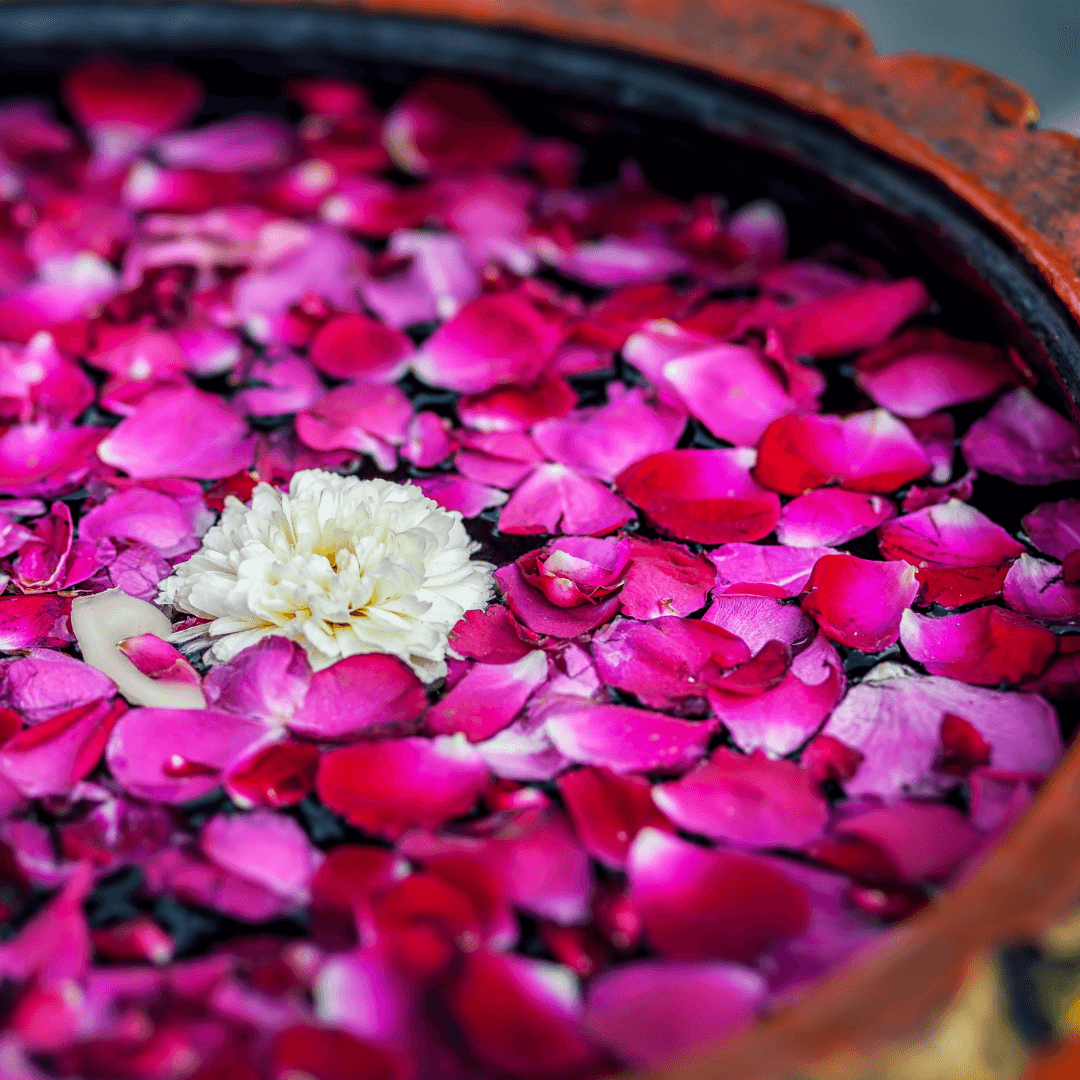Vata and Graceful Fall Living
The Yoga-Ayurveda Connection: Traditionally studied together, yoga and ayurveda are intimately connected via their premise of the energetic constitution of our bodies, with the heart being the center of intelligence. They teach us to develop our awareness of the mind-body connection, which helps to prevent diseases and increase longevity.
On some level, most of us already know what will cause imbalance in our lives, but have we paid attention? If we have not learned to be present and honest with ourselves, how will we be able to make a committed effort to change? Ayurveda gives us a system that integrates body, mind and consciousness. It trains us to live and eat with awareness so we can make conscious choices for beneficial change. Staying in balance becomes a conscious habit rather than a fleeting thought.
In Ayurveda, Fall is the season for Vata dosha. The Sanskrit term '“dosha” is used to broadly classify individuals, seasons and time of day into three unique combinations of elements: vata, pitta, kapha. The word Vata means to blow or to move like the wind. Made up of the elements air and space, Vata controls all movements in the body as well as communication. Think of the flow of the breath, cellular mobility, all muscle contractions, the pulsation of the heart, tissue movements—and throughout the mind and the nervous system. The wind embodies the qualitites of vata. Visulaize a clear, crisp autumn day, with levaes blowing off the trees, and think of the drying effect that cold air has on our exposed skin.
During the fall, windy weather causes people to experience more vata than normal. When Vata mobilizes in dry, windy autumn, it accumulates in the nervous system and can bring anxiety. During the vata time of life , we benefit from vata-balancing foods that are moist, oily, warm and grounding.
Top Ten Essential Ayurvedic Tips for Wellness
Eat only when you are truly hungry
Wait six hours between meals
Eat mindfully, in a harmonious environment
Drink warm water with your meals and upon rising
Stop eating before you feel full
Eat your big meal at middday and lighter meals for breakfast and dinner
Cook at home using whole foods
Emphasize local, organic foods in your diet
Minimize leftovers
Take a break with a mono-diet of kitchari
Balancing Vata
If you are feeling like a space cadet, are full of anxiety and fear, are frequently constipated or are experiencing itchy hemorroids, these symptoms indicate excess vata. Analyze your food and your lifestyle. Does your food have a preponderance of pungent, bitter and astingent tastes? Have you been eating a lot of raw, light, mobile, dry and/or rough foods such as potato chips, crackers, beans, caffeniated drinks, or raw salads? Has your life included a lot of activity - travel, running, intense yoga, gymnastics, nonstop talking at meetings- with no downtime?
Since the vata qualities are light, cold, dry, rough. mobile, subtle and clear, the opposite qualities of heavy, hot, slimy/smooth, static, gross and cloudy/sticky will decrease excess vata. Emphasize the sweet, sour and salty tastes with warming foods and drinks such as a hearty root vegetable stew, beef broth, herbal tea, warm spiced milk, bananas and sweet oranges.
To decrease excess vata, slow down, keep to a routine, stay hydrated and get plenty of rest. Try meditation, a daily oil massage, or our Traditional Tantra Tri-Dosha Yoga Class on Wednesdays at 7am or Sundays at 4pm.
3 Ayurvedic Herbs for Anxiety
1. Ashwagandha
According to a study published by Sebastian Pole in the Indian Journal of Psychological Medicine, “Ashwagandha strengthens an exhausted nervous system that can manifest with ‘hyper’ signs such as emotional instability, agitation, or feeling stressed out.”
It can help to reduce the level of cortisol in the body, which is the hormone responsible for stress. Ashwagandha also promotes restorative sleep and balances energies in the body to reduce insomnia and boost energy as well as stamina. Be cautious in your usage when pregnant.
2. Brahmi
The brahmi herb derives its name from the same roots as Brahma (Hindu god responsible for all creative forces in the world) and Brahman (Hindu name for universal consciousness).
Brahmi is known for its mind-enhancing effects as well as for reducing stress. Some studies reveal that brahmi may boost brain function and improve memory, learning ability, and concentration. It may also play a role in alleviating anxiety and stress. It is also used to treat insomnia.
3. Tulsi (Holy Basil)
Tulsi is a common herb found in almost every Hindu household in India. Considered a sacred plant with sattvic qualities, Tulsi is used to bring spiritual clarity. During winter, some make masala tea with its leaves to lift the heaviness of cold, cough, and fevers. Tulsi tea is also great for tension headaches from high Vata and can be used as a mild nervine to treat anxiety and stress. If you are high Pitta and have a respiratory infection, use this herb in moderation and in combination with cooling herbs.
Deep Sleep Ayurvedic Tonic
Calm Vata—or any flighty, fractured, can’t-settle-down sort of energy—with this deep sleep Ayurvedic tonic.
Ingredients (serves 2)
2 cups milk
2 medjool dates, pitted
1 teaspoon turmeric
1/2 teaspoon nutmeg, freshly grated
Instructions
Wear an apron—turmeric stains! Put the dates in a blender with half a cup of water. Blend until the dates are completely liquefied. Pour into a saucepan with the milk, turmeric and nutmeg. Whisk the milk gently while bringing to a gentle boil. Serve and drink warm. You can make it vegan by replacing the dairy with homemade coconut, almond, or rice milk; and a teaspoon of coconut oil.
For vata: Stir in a hearty pinch of ginger and a dash of cardamom.



